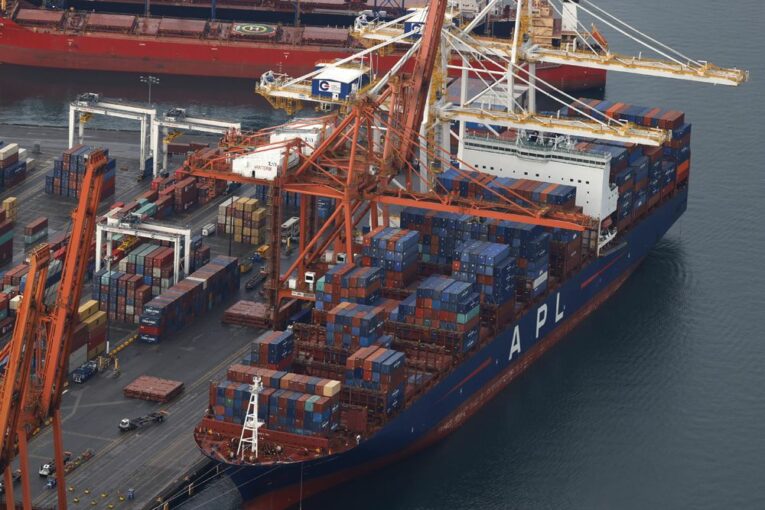
The CEO of the Vancouver Fraser Port Authority, who has spent the year trying to keep goods moving amid unprecedented supply-chain snarls and a catastrophic flood, called on the business community to recognize the urgency to reverse climate change and invest in infrastructure to reduce the risk of future trade bottlenecks.
Robin Silvester delivered his annual remarks to the Greater Vancouver Board of Trade on Nov. 25, a routine update on the state of the port. But there was nothing routine about the backdrop for this year’s “State of the Port” address, given British Columbia faced another onslaught of torrential weather, and all the goods stuck on the dock are a contributing factor to the most severe inflation threat since the early 1990s.
“In the past 20 months — and in a very concerning and tragic way over the last two weeks, here in B.C. — we have seen mounting impacts of climate change,” Silvester said. “Globally, and in the ports and shipping industry, we know that the future must be decarbonized.”
B.C. endured record-breaking rainfall last week that could amount to Canada’s costliest disaster . The weather event, known as an “atmospheric river” because it creates a dense mass of travelling water vapour, dropped a month’s worth of rain on the Fraser Valley in two days. It submerged farms and caused mudslides that wrecked highways and damaged railways, effectively severing the Port of Vancouver from the rest of the country. Environment Canada is warning of another bout of potentially detrimental rains this weekend.
What occurred in B.C. is part of a larger trend of disastrous climate events taking place around the world, heightening the “need to act now,” Silvester said. B.C. experienced a deadly wildfire season this summer, which also caused disruptions to transport routes.
Silvester said the port authority is working with federal and provincial governments on a joint supply-chain recovery working group to work on flood recovery and to prepare for future climate events.
“But bigger picture, we’re trying to create a framework that supports and enables industry across the port and its supply chain to switch to cleaner fuels,” he said.
Currently, the authority is working to provide liquid natural gas supply to fuel ships at the port in the interim until fuels like green ammonia and hydrogen become the more viable option. Silvester also told the board of trade about the Clean Technology Initiative, a program in partnership with the provincial government to provide funding for trial and adoption of low- and zero-emission fuels and technologies at the port.
He highlighted two examples already being deployed: biodiesel ferry fuel and battery-electric powered terminal tractors.
Silvester also discussed issues facing the port, such as limited industrial land for container storage as well as logistics and distribution centres. He touted the advancements in corridor infrastructure and data collection to avoid the heavy backlogs at ports seen around the world.
As one of the biggest import and export gateways in North America, the Port of Vancouver has been at the forefront of supply-chain disruptions that have beleaguered the Canadian economy while stoking inflation. The consumer price index increased 4.7 per cent in October from a year earlier, matching the biggest increase since 1991, the year the Bank of Canada pledged to set interest rates to keep inflation at about two per cent. The damage due to the floods will likely weigh on the economic recovery even more.
“We have seen, all too clearly, how a surge of demand exceeding capacity can overwhelm a trade system,” Silvester said, particularly in reference to the need to expand container space. “That should give us serious pause for thought, here in Canada.”
• Email: [email protected] | Twitter: biancabharti
You can read more of the news on source
